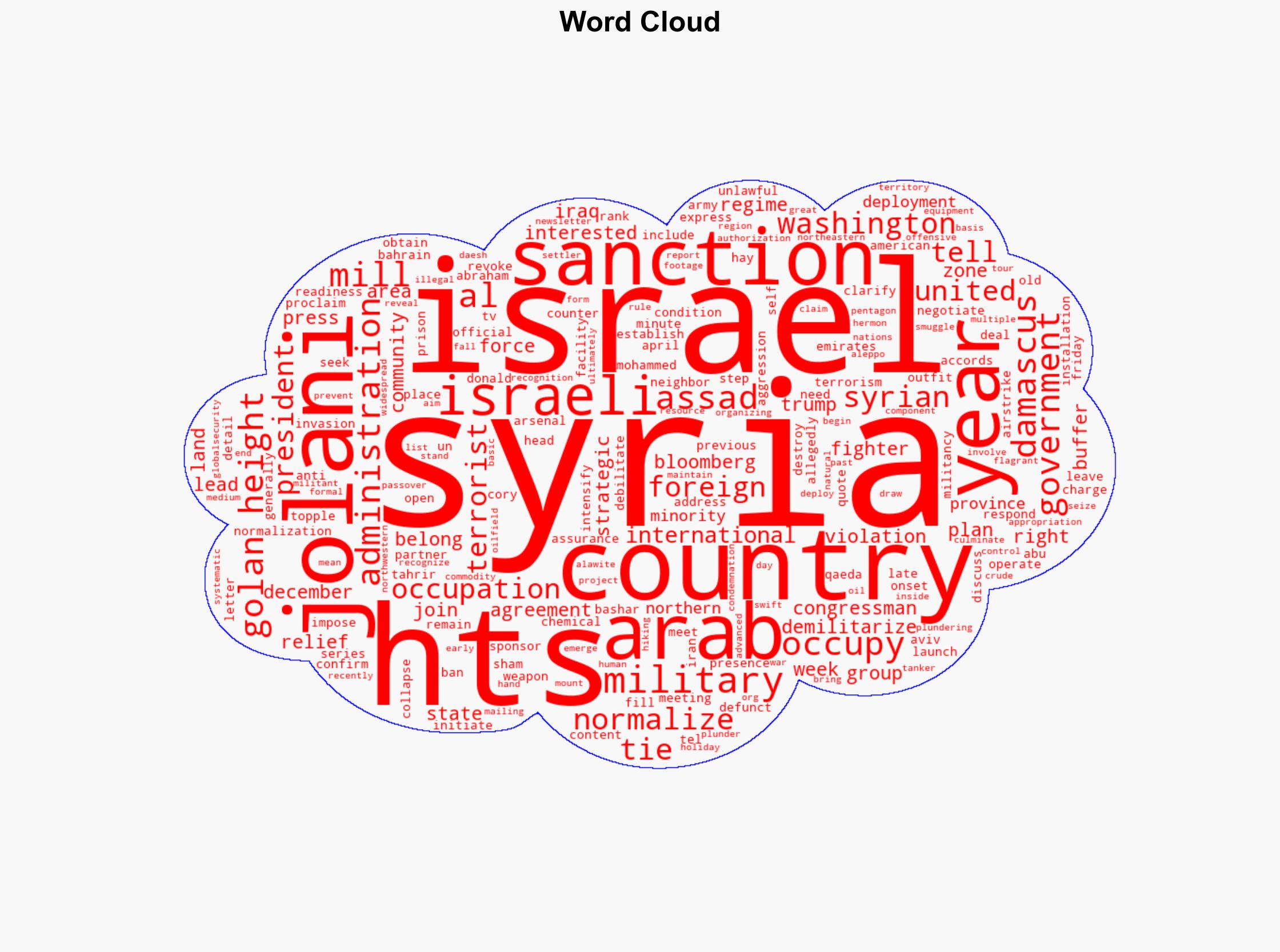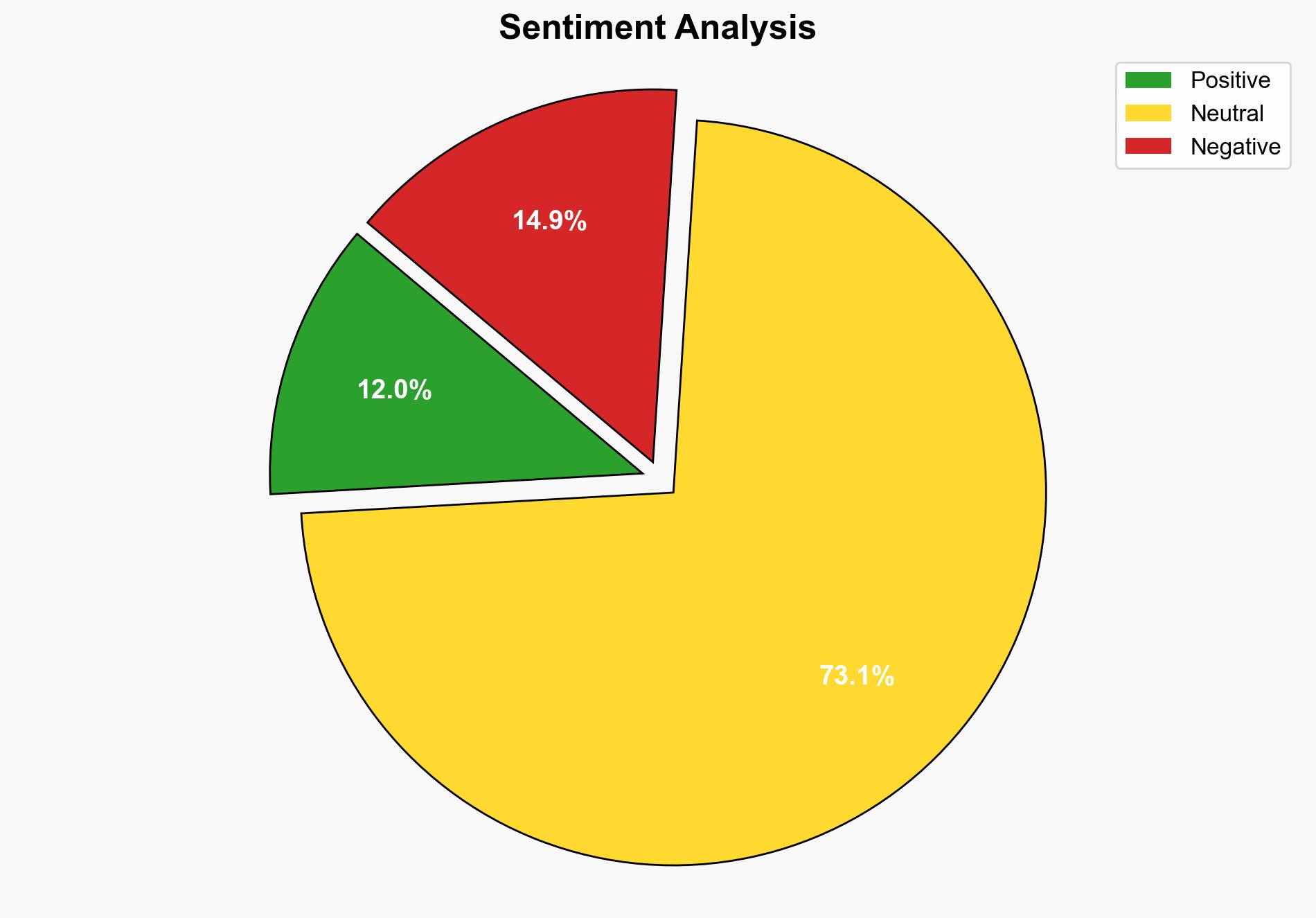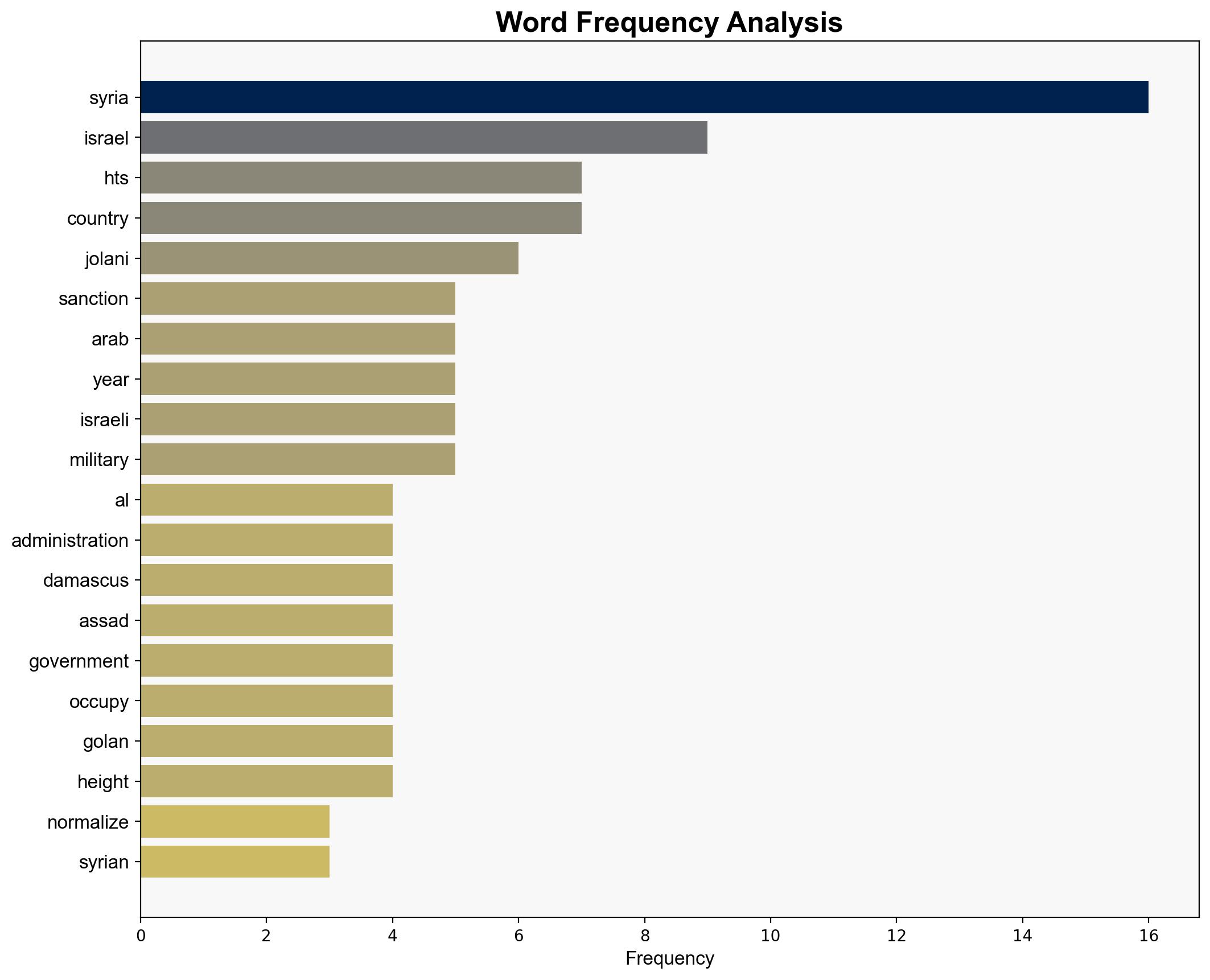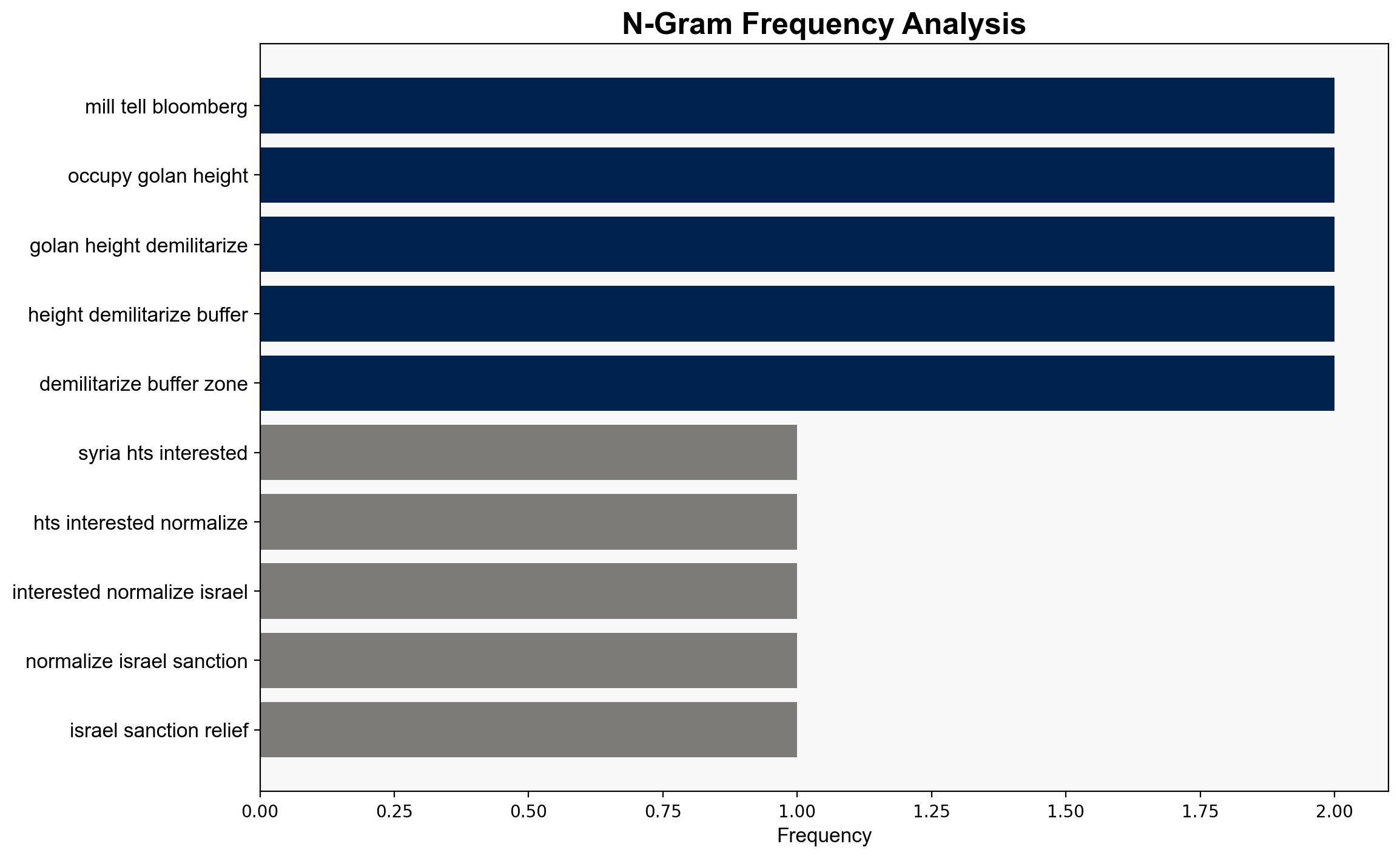Syria’s HTS says ‘interested’ to normalize with Israel amid US sanctions relief – Globalsecurity.org
Published on: 2025-04-26
Intelligence Report: Syria’s HTS says ‘interested’ to normalize with Israel amid US sanctions relief – Globalsecurity.org
1. BLUF (Bottom Line Up Front)
Hay’at Tahrir al-Sham (HTS) has expressed interest in normalizing relations with Israel as part of a broader strategy to secure relief from U.S. sanctions. This development could alter regional dynamics, particularly if it leads to Syria’s inclusion in the Abraham Accords. Key recommendations include monitoring HTS’s diplomatic engagements and assessing potential shifts in U.S. and Israeli policies regarding Syria.
2. Detailed Analysis
The following structured analytic techniques have been applied to ensure methodological consistency:
SWOT Analysis
Strengths: Potential for reduced isolation and economic relief for HTS; strategic realignment opportunities.
Weaknesses: Internal opposition within Syria; potential backlash from Iran and other regional actors.
Opportunities: Enhanced regional stability through integration into broader peace frameworks; economic benefits from normalization.
Threats: Escalation of regional tensions; destabilization from opposing factions within Syria.
Cross-Impact Matrix
The potential normalization between HTS and Israel could influence regional alliances, particularly affecting Iran’s strategic positioning and the balance of power in the Levant. The interplay between U.S. sanctions policy and HTS’s diplomatic moves may create feedback loops impacting regional security.
Scenario Generation
Best Case: Successful normalization leads to broader peace agreements, reducing regional hostilities and fostering economic growth.
Worst Case: Backlash from regional powers leads to increased conflict and destabilization.
Most Likely: Gradual diplomatic engagement with cautious progress towards normalization, contingent on U.S. policy shifts.
3. Implications and Strategic Risks
The normalization efforts pose strategic risks, including potential retaliation from Iran and the exacerbation of internal Syrian conflicts. The involvement of foreign fighters and the presence of chemical weapons remain critical vulnerabilities. The geopolitical landscape could shift, influencing U.S. and Israeli military strategies.
4. Recommendations and Outlook
- Monitor HTS’s diplomatic activities and public statements for indications of policy shifts.
- Engage in diplomatic dialogues to assess the feasibility and implications of Syria joining the Abraham Accords.
- Prepare contingency plans for potential escalations involving Iran or other regional actors.
- Scenario-based projections suggest cautious optimism for diplomatic progress, with vigilant monitoring of regional responses.
5. Key Individuals and Entities
Abu Mohammed al-Jolani, Cory Mill
6. Thematic Tags
(‘national security threats, cybersecurity, counter-terrorism, regional focus’, ‘cybersecurity’, ‘counter-terrorism’, ‘regional focus’)





